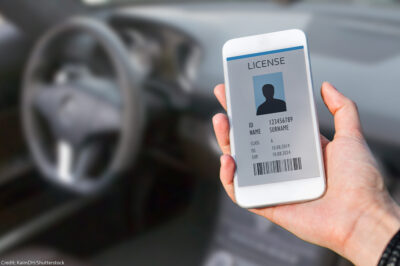
In a Friday, the always interesting Paul Krugman weighs in on the future of wearable technology such as the Apple Watch. Acknowledging that he has no special expertise, he predicts that wearable tracking devices will become widespread, and that people will use them not just to monitor themselves, but, as he pithily puts it, ÔÇ£so the ubiquitous surveillance net can see them, and give them stuff.ÔÇØ
Basically he's arguing that convenience will trump any privacy objections and weÔÇÖll all end up chipped and tracked. More specifically, he makes an interesting argument by citing the ÔÇ£Varian Rule,ÔÇØ according to which, as Krugman says, ÔÇ£you can forecast the future by looking at what the rich have today ÔÇö that is, that what affluent people will want in the future is, in general, something like what only the truly rich can afford right now.ÔÇØ One of the things he observes of the rich is they ÔÇ£don't wait in line.ÔÇØ They have minions that make sure things are ready for them wherever they arriveÔÇöa treatment, he points out, that is provided at Disneyland en masse through the use of electronic-tracking wrist bands.
This Varian Rule is not one that I'd heard of before, and I find it very interesting and probably often true. But IÔÇÖm not sure it applies here.
There are really two things that Krugman is arguing. First of all, that as an empirical matter this technology will be widely adopted for such purposes. Let me concede right off the bat that he might be right, for a variety of reasons. Certainly convenience has often trumped privacy. I do however think that outcome is less likely than he thinks it is.
But Krugman is also implicitly arguing that adoption of this technology will happen because the damage to privacy is really not a big deal. ÔÇ£Yes, it can sound kind of creepy,ÔÇØ he concedes, and predicts that even with privacy protections ÔÇ£there will tend to be an expansion of your public profile and contraction of your private space,ÔÇØ as well as possible monitoring by the government. He continues:
But two points here. First, most people probably donÔÇÖt have that much to be private about; most of us donÔÇÖt actually have double lives and deep secretsÔÇöat most we have minor vices, and the truth is that nobody cares. Second, lack of privacy is actually part of the experience of being richÔÇöthe chauffeur, the maids, and the doorman know all, but are paid not to tell, and the same will be true of their upper-middle-class digital versions. The rich already live in a kind of privatized surveillance state; now the opportunity to live in a gilded fishbowl is being (somewhat) democratized.
I think he's off-base on both of his points here (and as a result overstates the likelihood of his predicted empirical outcome). First, the idea that most people have ÔÇ£nothing to hideÔÇØ is a common reaction to privacy objections when they are presented in the abstract ÔÇöbut a misguided one. Of course Krugman need not endorse the attitude in order to be correct that it will guide consumer behavior in coming yearsÔÇöbut in fact, the ÔÇ£nothing to hideÔÇØ attitude, so often flippantly thrown out, usually disintegrates when people think about the matter in any depth, partly because a) many more people than Krugman suggests probably do have double lives and hold deep secrets, and b) even those who do not still have many things they wish to hide from many people, and not because they have done anything wrong, but simply because they are human beings. (I summarized the problems with the ÔÇ£I have nothing to hideÔÇØ reaction here.)
I'm also not sure he's correct about the rich. It was certainly true in ages past that the wealthy lived in intimate closeness with their staff of servants. I was struck by a scene in the miniseries Rome in which a couple makes love: after they finish, the woman throws her arms backwardsÔÇöand a chalice is placed in her hand. The camera pulls back, and we see that numerous servants are standing attentively around the edge of the room. Many centuries later, European nobles lived in nearly the same intimacy with their servants. I doubt that very many American billionaires live that way today, though certainly they have people who make a lot of arrangements for them, and as Krugman says ÔÇ£the chauffeur, the maids, and the doormanÔÇØ may know certain things about them.
But whether or not the super-rich live in ÔÇ£a kind of privatized surveillance state,ÔÇØ the fact that such a state is private changes everything, when you are the owner/controller of it. While the wealthy may have servants, they have power over those servants. When it comes to privacy, what really matters is that we not expose information about ourselves to people who have the power to use that information against us socially, economically, legally, or other ways. The wealthy have less to fear from others because there are far fewer people who wield significant power over them. They especially have power over those they employ. And in fact, their trusted servants can often help them protect their privacy in the ways that matter, carving out healthy arenas of personal privacy for their employers: gated estates, literal and figurative.
True, even paying servants to be quiet is not always reliable and leaves some risk of exposure to the tabloids or what have you. If Krugman is predicting that a limited number of the affluent will similarly pay to protect their privacy from the technology providers who create the infrastructures for tracking and convenience, then the analog could be apt; privacy as a premium good is a trend that we have begun to see. But if wearable tracking devices are to become ÔÇ£ubiquitous,ÔÇØ i.e. deployed for the masses, then I think that (in the absence of any regulatory protection) itÔÇÖs at least as likely that we will see the usual poor privacy practices, including complex and weak privacy policies and all the rest.
And of course, no matter how much you may pay a provider for premium privacy protection, the government can still access that data through its plentiful post-9/11 legal authorities.
The very automation of a hypothetical electronic concierge changes things as well. Your servants can run to the tabloids, or they can be served with legal process, and spill everything they may remember about your activities. But that is no match for the privacy invasion that can take place when electronic databases are turned over. Computers never forget, and can include every detail of a personÔÇÖs activities for months or years on end.
If ÔÇ£wearables will become pervasive very soon,ÔÇØ as Krugman predicts, and Americans lower down the economic ladder exchange their privacy for services, they, far more than the rich, will be at risk of being genuinely hurt by the tools they use. That in turn, will increase the chances of a backlash.



